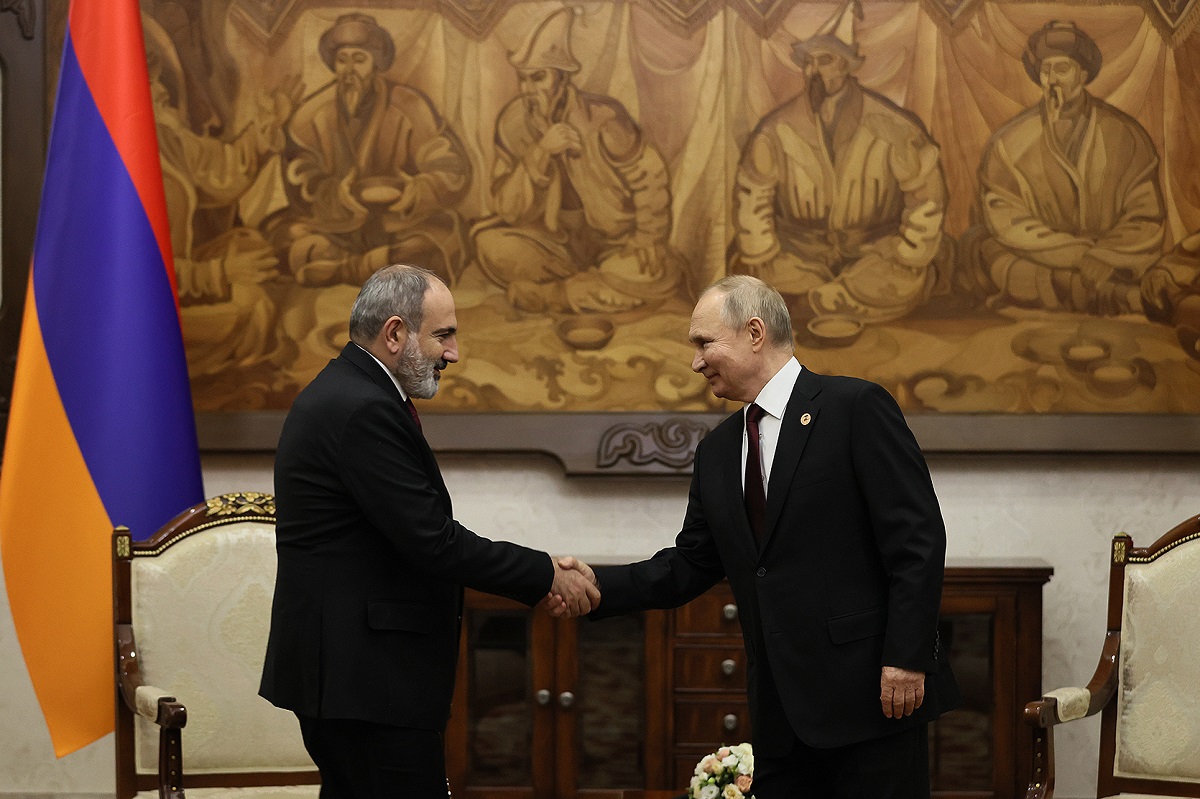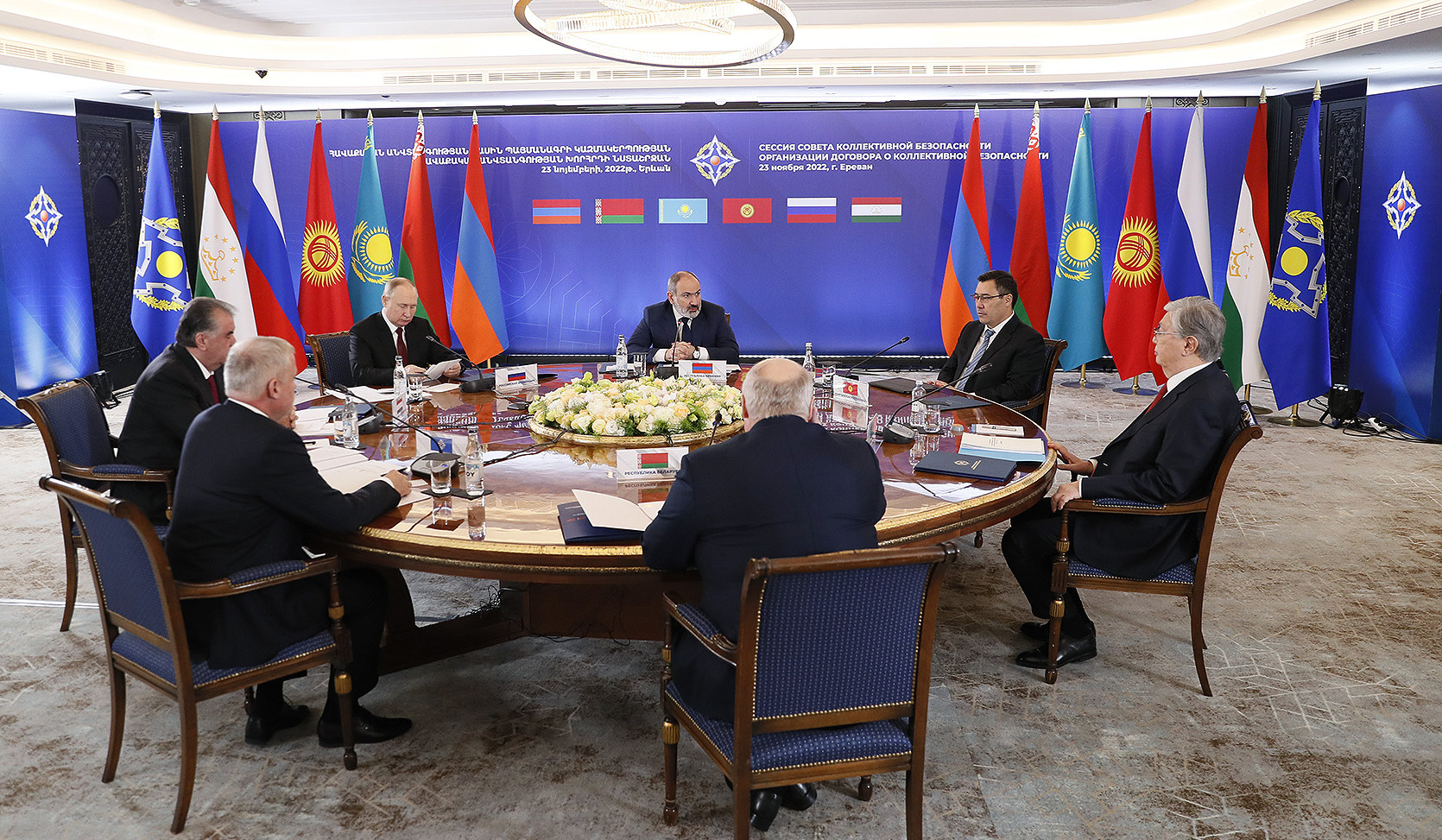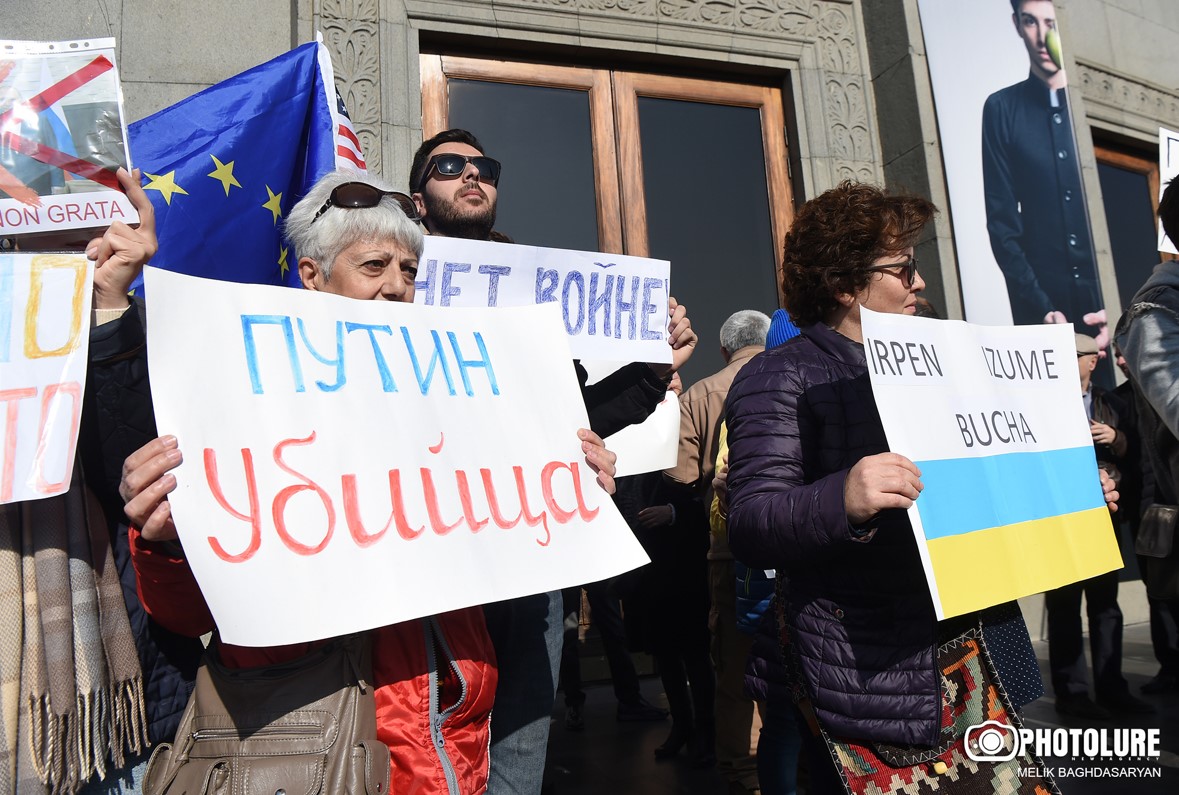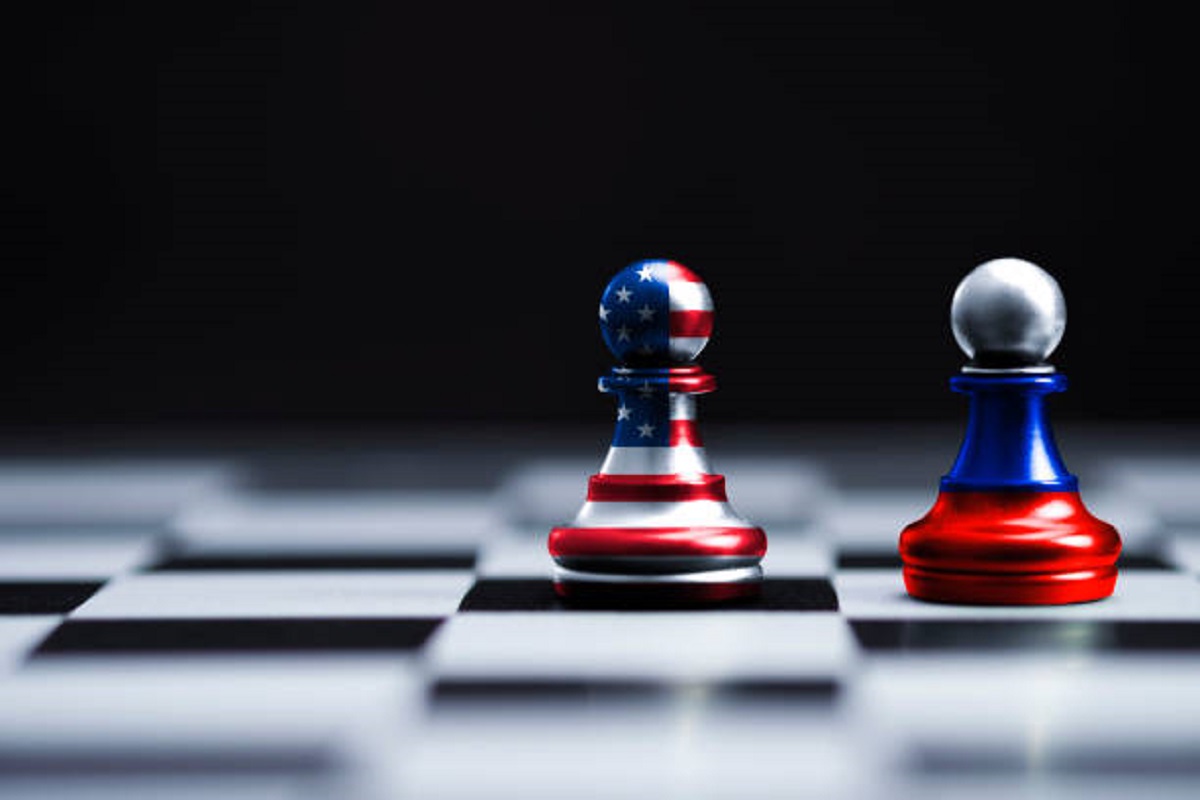"Lachin corridor may open as a result of compromises" - political scientist
Pashinyan-Putin meeting in St. Petersburg
During a meeting with the President of Russia, the Prime Minister of Armenia reminded him of the situation in NK, the critical Lachin corridor being blocked for two weeks, and the obligations of the Russian peacekeepers in their zone of responsibility. According to a tripartite statement signed by the heads of Armenia, Russia and Azerbaijan, the Russian peacekeeping contingent is obliged to ensure unhindered passage along the only road linking Nagorno-Karabakh with Armenia. “Now it turns out that the Lachin corridor is not under the control of Russian peacekeepers. I would like to discuss this situation and the options,” Nikol Pashinyan said during the meeting in St. Petersburg.
Vladimir Putin also emphasized the importance of “everything connected with Karabakh”, and said that the day before “the three of us managed to talk about the settlement of the situation in the South Caucasus.” Thus Putin made it clear that a discussion of the issue between him, Pashinyan, and Aliyev was also held in St. Petersburg.
The Prime Minister of Armenia participated in an informal summit of CIS countries in St. Petersburg. Moscow initially did not rule out the possibility of a meeting between Pashinyan, Aliyev and Putin. However, on December 26, Russian presidential spokesman Dmitry Peskov said that only bilateral meetings between Putin and the leaders of Armenia and Azerbaijan were expected.
The Secretary of the Security Council of Armenia talked about the pressure being exerted on the country after Pashinyan’s departure for St. Petersburg, stating that “pressure is being exerted so that it provides an extraterritorial corridor [to Azerbaijan through southern Armenia] and becomes part of the [Russia-Belarus] union state.”
Political scientist Suren Surenyants believes that talk about a union state is more propaganda than “a real risk that threatens Armenia.” He believes that the authorities should clearly indicate what is required of them — both on the issue of joining any union, and in connection with the corridor.
Pashinyan: “The main issue is the situation in the Lachin corridor”
Pashinyan said at a meeting with Putin that the most pressing issue for Armenia is the crisis in the Lachin corridor:
“The Lachin corridor has been blocked for almost twenty days. This is the area of responsibility of Russian peacekeepers in Nagorno-Karabakh. I want to remind you that according to the trilateral statement [of November 9, 2020] of the President of the Russian Federation, the President of Azerbaijan and the Prime Minister of Armenia, the Lachin corridor should be under the control of Russian peacekeepers. And the Republic of Azerbaijan guaranteed the unhindered passage of vehicles along the Lachin corridor.”
Pashinyan concluded: “Now it turns out that the Lachin corridor is not under the control of Russian peacekeepers.”
Putin: “We managed to talk together”
No details about the discussion between the leaders of Armenia, Russia and Azerbaijan in St. Petersburg have been reported. It is only known that they took place, according to Putin himself.
“Of course, the main issue is the settlement of the situation in the South Caucasus as a whole, Armenian-Azerbaijani relations, everything related to Karabakh. So, as we agreed, we will discuss all these issues in detail,” Putin said.
As in the previous meeting with Pashinyan, this time Putin did not answer the questions that Pashinyan raised in front of cameras, and only emphasized the “positive dynamics” of economic cooperation between Armenia and Russia:
“Over the ten months of this year, 73% growth in trade. This is a good result.”
“Armenia is being forced to provide an extraterritorial corridor and join the Union State”
As it became known that Pashinyan would participate in the informal CIS summit, discussions began in Armenia on what pressure the Prime Minister of Armenia will have to resist this time, and what issues will be discussed during the meeting with Putin.
These questions were actually answered by the Secretary of the Security Council Armen Grigoryan in an interview on public television on December 26.
He started the conversation with the crisis in the Lachin corridor, for which Azerbaijan is responsible, but which Russia has the authority to resolve.
According to the Secretary of the Security Council, pressure is exerted in Lachin in order to obtain an extraterritorial corridor through the territory of Armenia, which is called “Zangezur” in Turkey and Azerbaijan. Armen Grigoryan stated that the pressure on Armenia is related to pressure to join the Russia-Belarus Union State.
“The Union State is an absolute violation of sovereignty. The issue of joining the Union State is not on the agenda of Armenia,” he said, adding that the democratic process in Armenia limits even the possibility of discussing this issue.
Regarding the unblocking of the Lachin corridor, Grigoryan maintained that the Armenian government will use “every opportunity at its disposal” to ensure free and unhindered movement. He said that at the moment “the main toolkit is diplomacy.”
A comment
Political scientist Suren Surenyants says that the Pashinyan-Aliyev-Putin conversation did not take the form of negotiations in the classical sense, and that based on Putin’s phrasing, it can be assumed it was a behind the scenes conversation at the summit.
“Naturally, the topic of discussion should have been the current situation, the problems associated with the Lachin corridor, or the problems that caused the crisis,” he told JAMnews.
Surenyants says that information about the meetings held in St. Petersburg is very scarce, which makes it impossible to judge their productivity. But in his opinion, the Lachin corridor will soon be unblocked and a humanitarian catastrophe in NK will be averted:
“I think the corridor will be opened in the next day or two. But I do not really hope that it will operate in the same way that it had before December 12, before the blockade. Functionally it will be like a road where some elements of Azerbaijani control will also appear next to the Russians.”
Recalling Pashinyan’s mention of “options”, Surenyants comes to the conclusion that the unblocking of the corridor may be “the result of some kind of compromise.”
Surenyants also commented on the statements of the Secretary of the Security Council about “an extraterritorial corridor and a union state.” He says that the Lachin corridor is not extraterritorial, so that by closing it, they would try to knock out the same corridor from Armenia. In addition, he believes that the Armenian authorities are making contradictory statements on this topic, whereas they should clearly state what exactly Moscow and Baku demand from them — an extraterritorial corridor or transport routes.
According to Surenyants, objective justifications should also be presented regarding “coercion to become a member of the Union State.” He recalls that Moscow has previously denied such allegations.
Surenyants believes that while the war is going on in Ukraine, “the idea of a new union cannot be relevant for Russia”:
“The idea of this union can be valuable only if Ukraine also joins it. And such a prospect is now impossible to discuss. Therefore I consider such conversations to be more of a propaganda narrative than a real risk that threatens Armenia.”
Follow us – Twitter | Facebook | Instagram
Pashinyan-Putin meeting in St. Petersburg






















